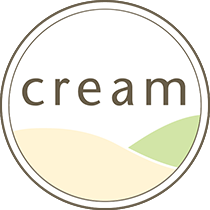| March 2019 | ||
| « Feb 2019 | News | Apr 2019 » |
March 15, 2019
Rombauer Vineyards: Deep Napa Valley Roots
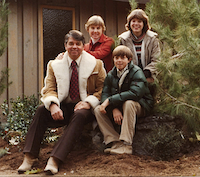 Following a thirty year career as a military and commercial pilot, Koerner Rombauer and his wife Joan began their search down the California coast, looking for a small-town, agricultural environment to move their family. When they eventually found their way to the hillside community of St. Helena in 1972, they arrived to a Napa Valley that was on the cusp of a monumental transition in modern day winemaking; four years before the notorious Judgement of Paris, and two more behind the founding of Robert Parker’s Wine Advocate.
Following a thirty year career as a military and commercial pilot, Koerner Rombauer and his wife Joan began their search down the California coast, looking for a small-town, agricultural environment to move their family. When they eventually found their way to the hillside community of St. Helena in 1972, they arrived to a Napa Valley that was on the cusp of a monumental transition in modern day winemaking; four years before the notorious Judgement of Paris, and two more behind the founding of Robert Parker’s Wine Advocate.
Napa’s wine industry was already developing - not only in growing numbers, but in viticulture practices and cellar techniques, including the arrival of French oak and the first single vineyard designated wines. Local wineries were unknowingly gearing up for what would be a radical shift in the region’s international accolade, and the Rombauers arrived more than ready to try their luck.
After moving to Napa, Koerner and Joan quickly made friends with the local wine community. Looking to learn more about the business of growing grapes, the new Californian couple became partners with the Conn Creek Winery in 1976, soon applying this newfound knowledge to their own project in 1980. The grapes of Rombauer’s inaugural vintage were sourced from Stag’s Leap Wine cellars, where Joan would eventually become the National Sales Director, and made in both the cellars of Shafer Vineyards and Koerner’s own garage.
 This collaborative story of Rombauer Vineyard’s first vintage remained an important principle within the winery’s future. As Koerner and Joan’s own brand grew during the 1980s, they did so alongside the greater Napa Valley winemaking community. When the Rombauer’s broke ground for their own winery in 1982, they built for a capacity of 50,000 cases, tenfold of their own production at the time. Over the following decades, their winery served as an incubator for local, up-and-coming Napa Valley winemakers including Duckhorn, Solitude, Etude and Opus.
This collaborative story of Rombauer Vineyard’s first vintage remained an important principle within the winery’s future. As Koerner and Joan’s own brand grew during the 1980s, they did so alongside the greater Napa Valley winemaking community. When the Rombauer’s broke ground for their own winery in 1982, they built for a capacity of 50,000 cases, tenfold of their own production at the time. Over the following decades, their winery served as an incubator for local, up-and-coming Napa Valley winemakers including Duckhorn, Solitude, Etude and Opus.
Over the next few decades, Rombauer continued to grow, eventually becoming the pillar in Napa Valley luxury wine that we know the brand as today. During the 1990s, Rombauer made its way to the short lists of superior wines with their Chardonnay leading the way. Following the untimely death of Joan in 2002, and Koerner this past May (2018), Rombauer has remained a multi-generation, family owned winery.
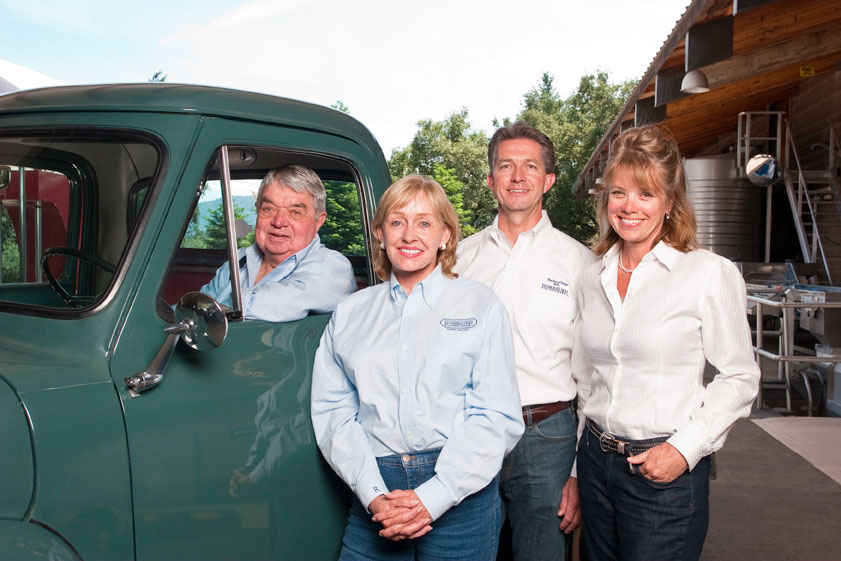 In the past decade, Rombauer Vineyards has found themselves again at the forefront of the California wine industry, this time through their large investment in cutting edge sustainable practices. All cardboard, plastic and glass is recycled, and all green waste generated from the vineyards and winery is composted and used as a natural fertilizer, returning essential nutrients to the soils. 70% of the estate’s energy is provided by solar power, and water monitoring technology, including neutron probes and double dripper irrigation lines, have proven successful in decreasing water use and increasing efficiency.
In the past decade, Rombauer Vineyards has found themselves again at the forefront of the California wine industry, this time through their large investment in cutting edge sustainable practices. All cardboard, plastic and glass is recycled, and all green waste generated from the vineyards and winery is composted and used as a natural fertilizer, returning essential nutrients to the soils. 70% of the estate’s energy is provided by solar power, and water monitoring technology, including neutron probes and double dripper irrigation lines, have proven successful in decreasing water use and increasing efficiency.
 When asked about his seemingly disparate careers in flying airplanes and growing grapes, Koerner articulated a metaphorical connection between the two, saying;
When asked about his seemingly disparate careers in flying airplanes and growing grapes, Koerner articulated a metaphorical connection between the two, saying;
“Flying and winemaking are both mystical, magical things. The magic of flying is that it allows you to leave behind all that binds you to the earth. The magic of winemaking is that you create something with your own hands, from your own piece of earth, that lasts for years. If you turn out a wine that can score the highest points, or highest bid, it’s like breaking out at minimums, right over the runway numbers, knowing you’ve nailed the approach.”
More from Rombauer:
Rombauer Vineyards 2017 Chardonnay, Carneros (1.5 L, 375 ML available)
Rombauer Vineyards 2017 Sauvignon Blanc, Napa Valley
Rombauer Vineyards 2014 ‘Diamond Selection’ Cabernet Sauvignon, Napa Valley
Rombauer Vineyards 2015 ‘Diamond Selection’ Cabernet Sauvignon, Napa Valley
Rombauer Vineyards 2016 Cabernet Sauvignon, Napa Valley
Rombauer Vineyards 2016 Merlot, Napa Valley
Rombauer Vineyards 2017 Zinfandel (375 ML available)
March 14, 2019
Janie Brooks Heuck; Biodynamics, Giving Back, and the Future of Oregon Riesling
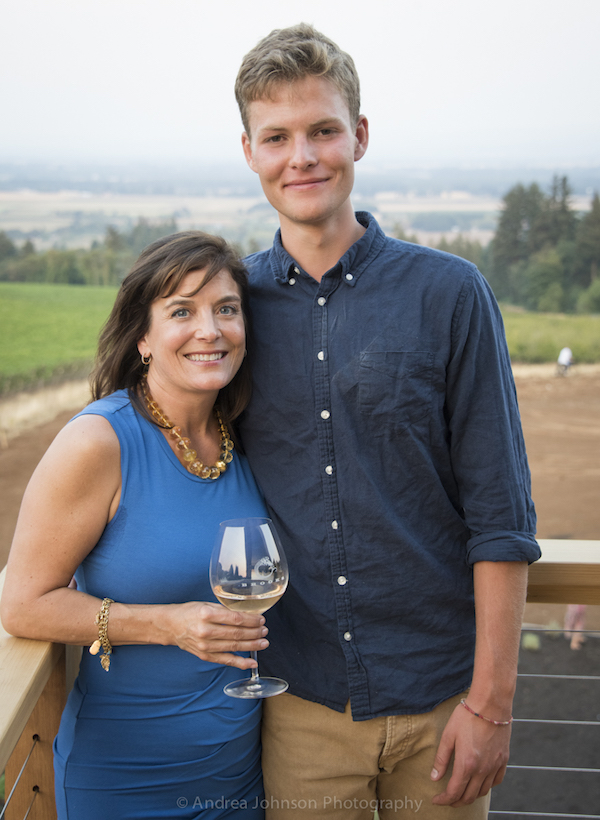 Brooks Wines in Amity, Oregon is the living legacy of Jimi Brooks - a Portland native who fell in love with winemaking while working a harvest in Beaujolais, eventually making his way back to the Pacific Northwest to start his own project. With a reverence for the land and vines, Jimi became a path-breaker in biodynamic and organic viticulture, showing the excellence of terroir in Oregon’s Pinot Noir and Riesling production. When Jimi suddenly passed away in 2004, he left behind Brooks to his young son Pascal, who is now the sole owner of the winery, and his sister Janie Brooks Heuck, who has since volunteered to manage Brooks Wines while Pascal finishes school.
Brooks Wines in Amity, Oregon is the living legacy of Jimi Brooks - a Portland native who fell in love with winemaking while working a harvest in Beaujolais, eventually making his way back to the Pacific Northwest to start his own project. With a reverence for the land and vines, Jimi became a path-breaker in biodynamic and organic viticulture, showing the excellence of terroir in Oregon’s Pinot Noir and Riesling production. When Jimi suddenly passed away in 2004, he left behind Brooks to his young son Pascal, who is now the sole owner of the winery, and his sister Janie Brooks Heuck, who has since volunteered to manage Brooks Wines while Pascal finishes school.
Having graduated from the University of Arizona with a degree in accounting, Janie had no intention of working in the wine industry. After receiving her degree, Janie spent the following decade building a career within the healthcare industry, a trajectory that was suddenly changed upon her brother’s death. Galvanized by keeping the spirit of his legacy alive, Janie quickly assumed responsibility for the business operations of Brooks. Over the following years, Janie involved herself within the greater Oregon vintner community, learning as much as she could about the business of making and selling wine.
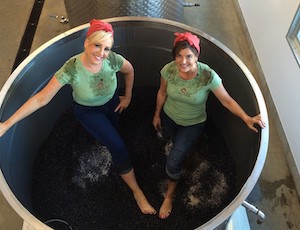 Despite a lack of tenure in the field, as the General Manager, Janie has continued to successfully keep the spirit of Brooks in line with Jimi’s vision, while also meeting new market demands. Still sourcing some of their fruit from original vineyards, along with staying close with original winemaking styles, Brook’s Wines has expanded production from 2,500 cases in 2004 to more than 12,000 today. Janie and Pascal have also sought to maintain the winery’s emphasis on sustainable agriculture.
Despite a lack of tenure in the field, as the General Manager, Janie has continued to successfully keep the spirit of Brooks in line with Jimi’s vision, while also meeting new market demands. Still sourcing some of their fruit from original vineyards, along with staying close with original winemaking styles, Brook’s Wines has expanded production from 2,500 cases in 2004 to more than 12,000 today. Janie and Pascal have also sought to maintain the winery’s emphasis on sustainable agriculture.
Brooks was awarded official Biodynamic certification from Demeter in 2008, and belongs to the Deep Roots Coalition in Oregon, which supports sourcing from only dry farmed vineyard sites. This past January, Brooks announced their partnership with 1% For The Planet, donating 1% of their gross profit to a qualifying not for profit.
Both Pascal and Janie remain steadily guided by the legacies that Jimi left: his strong commitment to organic and biodynamic farming in the vineyards, gentle approach to winemaking, excitement for future harvests and endlessly promoting how beautifully Pinot Noir and Riesling can be grown and produced in Oregon.
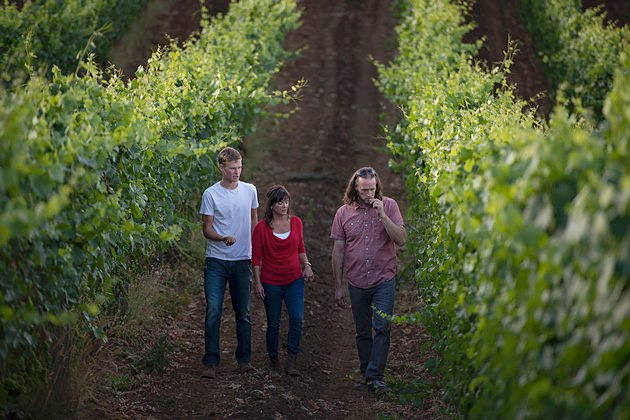
More from Brooks:
Brooks 2015 Sparkling Riesling
Brooks 2017 Pinot Blanc
Brooks 2017 Estate Pinot Gris
Brooks 2014 ‘Ara’ Riesling
Brooks 2016 Riesling
Brooks 2017 ‘Amycas’ White Blend
Brooks 2017 Pinot Noir Rose
Brooks 2015 ‘Janus’ Pinot Noir
Brooks 2015 ‘Rastaban’ Estate Pinot Noir
Brooks 2017 ‘Runaway Red’ Pinot Noir
Brooks 2017 Pinot Noir
Brooks 2016 ‘Sweet P’ Estate Riesling
Brooks (375ml) 2015 ‘Tethys’ Late Harvest Riesling
March 13, 2019
Tequila makes us smarter. So, drink smart - Sophie Decobecq of Calle 23
Smack dab in the middle of the male dominated tequila world is French-born Sophie Decobecq - the owner and master distiller of Calle 23.
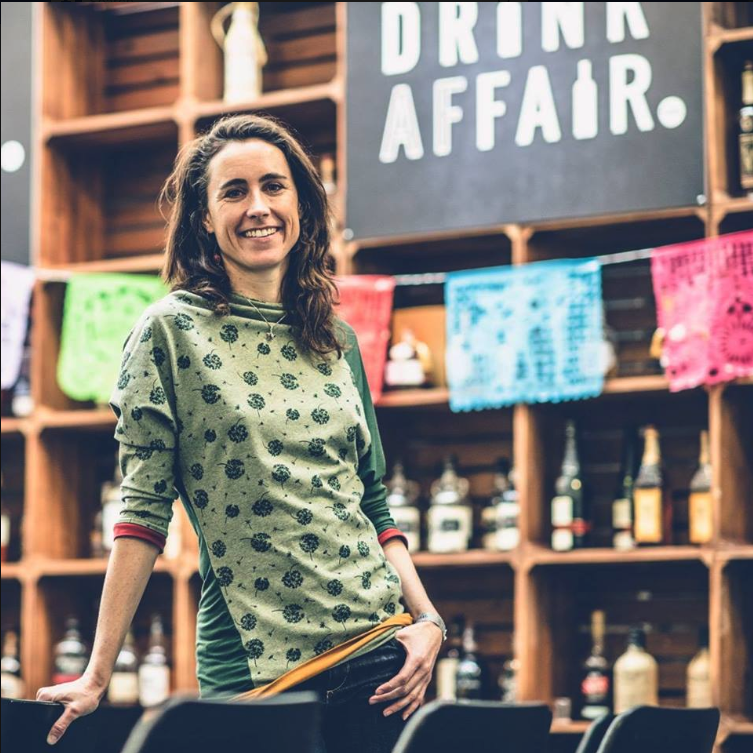
Looking to study fermentation in Mexico while pursuing a dual PhD in biochemistry and engineering in her native France, Sophie contacted the President of the Polytechnics Institute of Mexico City - inadvertently creating what would later become an official international exchange program. During these first 7 months in Mexico City, Sophie visited distilleries in Guadalajara and Tequila throughout the Mexican countryside, developing a passion for the region, the people and the tequila spirit.
Sophie subsequently took her first job consulting for an agave distillery in South Africa, but made her return to Mexico in 2003, propagating a series her own propriety yeast strands from a local farm. In the following years, Sophie established the export company, IMEX International, and started her own project, Calle 23, in Guadalajara.
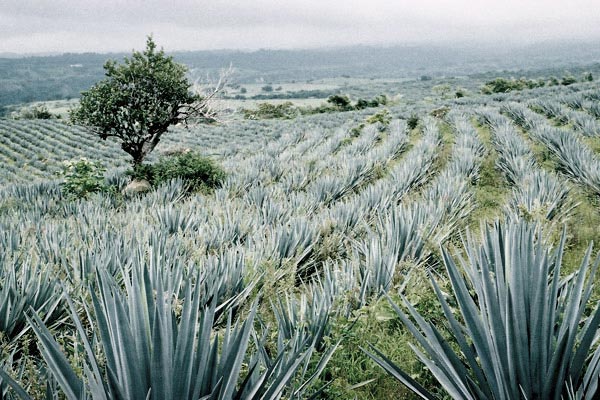
The excellence of Sophie’s tequilas are emblematic of her background in both biochemistry and fermentation - through using different yeast strains, the Calle 23 trilogy demonstrates the various expressions of agave that is unique in tequila production.
Sophie’s slogan is “Tequila makes us smarter. So, drink smart,” and we couldn’t choose anything more fit for the job than Calle 23.
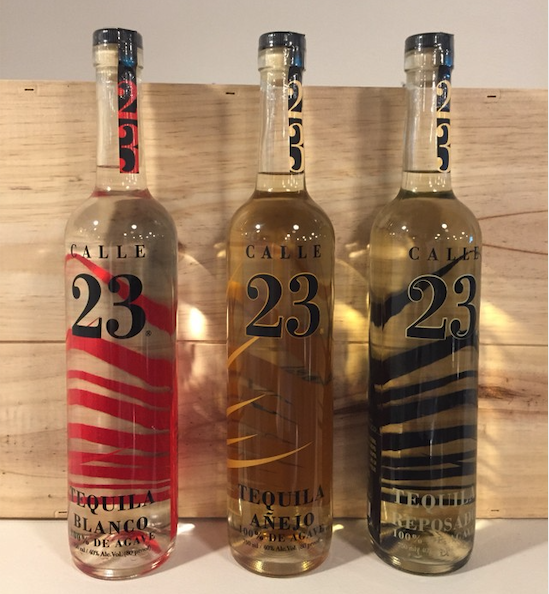
From Calle 23:
Tequila Calle 23 Anejo (80 Proof)
Tequila Calle 23 Blanco (80 Proof)
Tequila Calle 23 Reposado (80 Proof)
Tequila Calle 23 ‘Criollo’ Blanco (98.6 Proof)
March 11, 2019
Winemaker Dinner: Marisol x Martha Stoumen

Marisol x Martha Stoumen
Only 40 spots available for an intimate dinner with winemaker Martha Stoumen and chef Jason Hammel - Stoumen’s small Northern Californian label produces organic, minimal intervention wines.
Featuring limited new releases:
Post Flirtation White Blend ‘18
Out to the Meadow ‘18
Post Flirtation Red Blend ‘18
Nero d’Avola ‘17
Teal Drops Rosé ‘17
